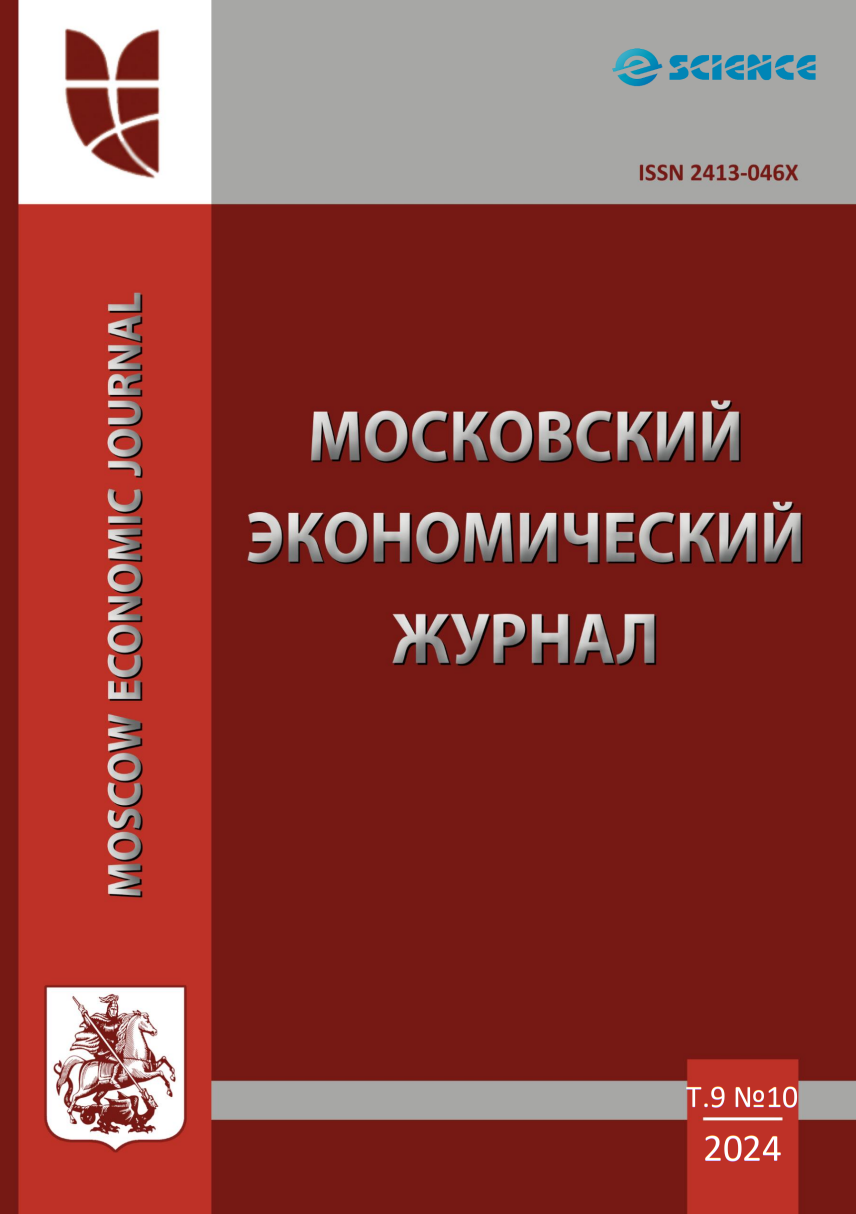UDC 330.341.2
This article explains the essence of inter-company interaction in the digital economy using the principles of an evolutionary approach. The evolutionary theory of firms explains inter-firm interaction through persistent differences and dynamic changes based on learning and adaptation to the external environment. An alternative approach to defining firm boundaries in inter-firm interaction based on codification of information and minimization of transaction costs is also described. The article argues that for effective inter-company interaction, participants must set up their exogenous routines in accordance with the rules, and optimizing the activities of each participant individually is not the key to success. In addition, the evolutionary theory of the firm recognizes the importance of limited rationality and information and emphasizes the need to configure the interfaces of exogenous routines in accordance with the rules for effective inter-firm cooperation.
evolutionary approach, routines, inter-company interaction, exogenous and endogenous routines, digital economy, firm
1. Dosi, Giovanni and Luigi Marengo. 2000. “On the Tangled Discourse between Transaction Cost Economics and Competence—based Views of the Firm: Some Comments,” in Competence, Governance, and Entrepreneurship. Nicolai J Foss and Volker Mahnke, eds. Oxford: Oxford University Press, pp. 8092.
2. Foss, Nicolai J. 2005. Strategy and Economic Organization in the Knowledge Economy. Oxford: Oxford University Press
3. Buhvalov A.V., Kat'kalo V.S. Evolyuciya teoriy firmy i ee znachenie dlya issledovaniy menedzhmenta // Rossiyskiy zhurnal menedzhmenta. — 2005. — №1. — S. 75—84.
4. Varlamova Z.N. Upravlenie razvitiem organizaciy v usloviyah formirovaniya ekonomiki znaniy. — Ekaterinburg: Institut ekonomiki UrO RAN, 2010. — 274 s.
5. Vernerfel't B. Resursnaya traktovka firmy // Vestnik Sankt—Peterburgskogo un—ta. — 2006. — Vyp. 1. — S. 103. (Menedzhment)
6. Demsec H. Esche raz o teorii firmy // Priroda firmy : per. s angl. — M.: Delo, 2001. — S. 237—267.
7. Kleyner G.B. Ot teorii predpriyatiya k teorii strategicheskogo upravleniya // Rossiyskiy zhurnal menedzhmenta. — 2003. — №1. — S. 31—56.
8. Kogut B., Zander U. Znaniya firmy, kombinacionnye sposobnosti i replikaciya tehnologii // Rossiyskiy zhurnal menedzhmenta. — 2004. — №1. — S. 121—140.
9. Nel'son R., Uinter S. Evolyucionnaya teoriya ekonomicheskih izmeneniy: per. s angl. — M.: Delo, 2002. — 536 c.
10. Nonaka I. Kompaniya — sozdatel' znaniya // Vestnik Sankt—Peterburgskogo un—ta. — 2006. — Vyp. 3. — S. 149—165. — (Menedzhment)
11. Popov E.V. Prioritety razvitiya fundamental'noy teorii firmy // Zhurnal ekonomicheskoy teorii. — 2004. — №1. — S. 16—40.
12. Rozanova N.M. Evolyuciya vzglyadov na prirodu firmy v zapadnoy ekonomicheskoy nauke // Voprosy ekonomiki. — 2002. — №1. — S. 50—67.
13. Ryuegg—Shtyurm Y. Novaya sistemnaya teoriya i vnutrifirmennye izmeneniya // Problemy teorii i praktiki upravleniya. — 1998. — №5. — S. 72—78.
14. Tis D.Dzh. Poluchenie ekonomicheskoy vygody ot znaniy kak aktivov. «Novaya ekonomika», rynki nou—hau i nematerial'nye aktivy // Rossiyskiy zhurnal menedzhmenta. — 2004. — №1. — S. 95—120.
15. Uil'yamson O.I. Issledovaniya strategiy firm: vozmozhnosti koncepcii mehanizmov upravleniya i koncepcii kompetenciy // Rossiyskiy zhurnal menedzhmenta. — 2003. — №2. — S. 79—114.











